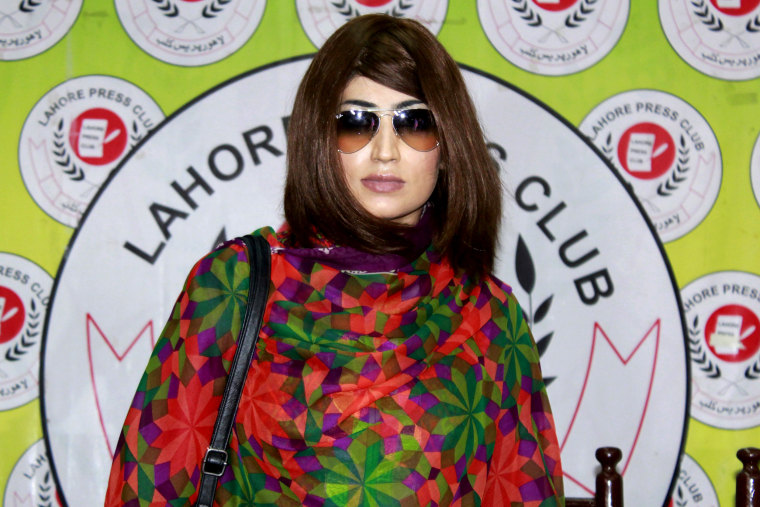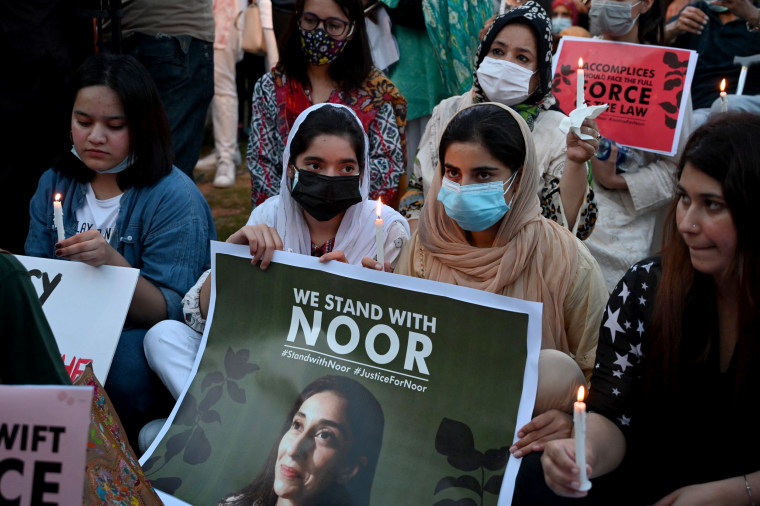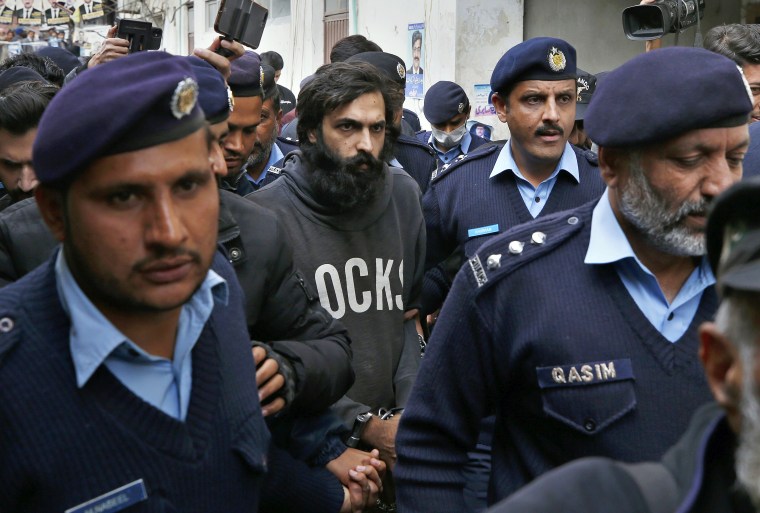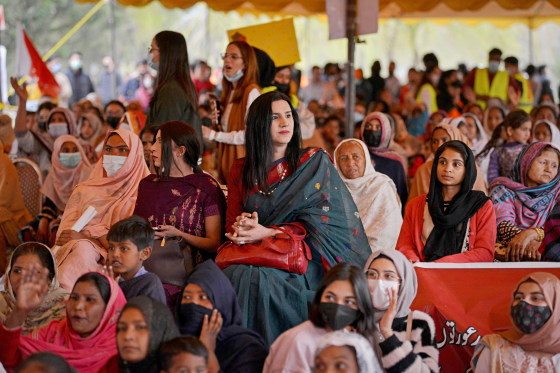ISLAMABAD — Threats of violence and intense conservative opposition will not stop this year’s International Women’s Day rallies in Pakistan, activists and organizers vowed ahead of events planned for Tuesday.
Still, organizers of the demonstrations, known as Aurat Marches after the Urdu word for “women,” are bracing for clashes.
“Whether it is a barrage of bullets, an attack of sticks or any kind of restrictions imposed either by the government or extremists, women will take to the streets of big cities including Islamabad, Karachi, Lahore and Peshawar to mark the day for women,” Naila Shigri, one of the march organizers, said in a phone interview from Karachi, Pakistan’s biggest city.
“We want structural change, the kind of change that can’t be measured but felt.”
Opponents of the Aurat March see women as a “soft target,” Shigri said. “However, they cannot knock us down.”
According to the Global Gender Gap Report published last year by the World Economic Forum, Pakistan ranks 153rd out of 156 countries. Activists say violence against women and girls is endemic in Pakistan, a Muslim-majority country of more than 220 million people, with two cases in particular giving this year’s march added resonance.
Last month, an appeals court in Lahore acquitted Muhammed Waseem in the 2016 murder of his sister, social media star Qandeel Baloch, after he was pardoned by his parents under Islamic law. Waseem, who was originally sentenced to life in prison, had said he strangled Baloch to death because her behavior had dishonored the family.

The government has said it will appeal the decision.
Asma Hafeez Jan, a women’s rights activist based in Islamabad, said Baloch “must be feeling uneasy in her grave” after her brother’s release.
“This is a question mark on the face of the legal system in Pakistan. The injustice done to her is likely to drive the majority of women and girls to come out and participate in the Women’s March,” she said.
Activists also cite the case of Noor Mukadam, the daughter of a former diplomat, who was raped and beheaded in Islamabad last July by a man who held her captive for days. Though her killer, Pakistani-American Zahir Jaffer, was sentenced to death last month, activists say the trial was characterized by victim blaming and attacks on Mukadam’s character.

Organizers of the march have faced threats since it was first held in Pakistan in 2018. This year they are also confronting what they say is a highly coordinated online campaign by Islamist hard-liners that aims to spread misinformation and distort the march’s message.
But the women’s rights movement in Pakistan is gaining strength as the marches grow in size each year, said Shumaila, a human rights activist based in Lahore who declined to give her full name because of safety concerns.
“The march has resulted in a seismic change in how we talk about gender, violence and bodily autonomy. We expect this year to be no different,” she said in a phone interview. “We will use art, songs, resistance and protest to challenge patriarchal mindsets and create space for women, transgenders and nonbinary folks.”
Shumaila pointed to victories like the expansion of the legal definition of rape and a law enacted in January that gives women greater protection against discrimination and harassment in the workplace. But she said organizers of the march, whose theme this year is “Reimagining Justice,” seek more than “a mere change in the law.”
“We want structural change, the kind of change that can’t be measured but felt,” she said.
Opponents accuse march organizers of promoting Western values at the expense of Pakistan’s Islamic social norms, with some of them openly threatening violence.
Download the NBC News app for breaking news and politics
“Our workers are ready to stop the march. They will not hesitate to use batons to stop it,” Abdul Majeed Hazarvi, an Islamic cleric and president of the right-wing political party Jamiat Ulema-e-Islam-Fazl, said in a speech last month.
The government of Prime Minister Imran Khan, who himself has been criticized for comments that appeared to blame women for sexual violence, has expressed support for the march.
“Pakistan’s Constitution allows women to raise their voice in favor of their demands,” Information Minister Fawad Chaudhry said at a news conference last month, adding that the government would provide security at the marches.
March organizers do not consider these idle threats. In 2020, religious conservatives wielding batons and stones attacked march participants in the heart of Islamabad, only a few hundred yards away from the prime minister’s office and Parliament building. Dozens of marchers were injured, including Ismat Shahjahan, the head of the march’s Islamabad chapter, who said it took months for her to recover.

Shahjahan said the crowd was marching peacefully when stones started raining down, setting off a stampede as people tried to escape.
“I got hit in the head, neck and back multiple times,” she said. “It was horrible.”
Other opponents have taken a different approach. In a letter to Khan last month, Noorul Haq Qadri, the minister for religious affairs, criticized the Aurat March as violating Islamic principles and promoting obscenity. He suggested the government instead designate March 8 as “International Hijab Day,” partly to express solidarity with Muslims in India protesting a ban on the head scarf in some schools.
March organizers say there is no need to choose one over the other.
“We welcome the women who want to mark International Women’s Day as ‘Hijab Day.’ It’s their choice,” said Farzana Bari, a human rights activist based in Islamabad.
The proposal was also criticized as an attempt to sow division.
“Religious extremists leave no chance to show how scared they are of our strong women,” Umaima Mehtab, a Pakistani beauty blogger, wrote on Twitter. “We need to celebrate Hijab Day and Aurat March both. Both are our pride. There’s no ‘one way’ of empowering women.”
